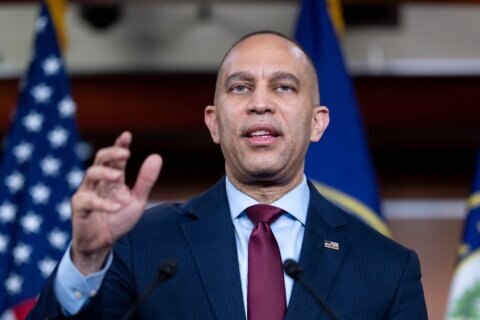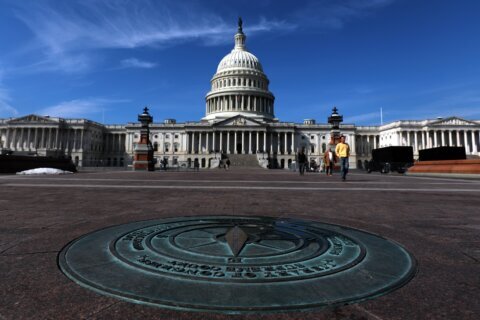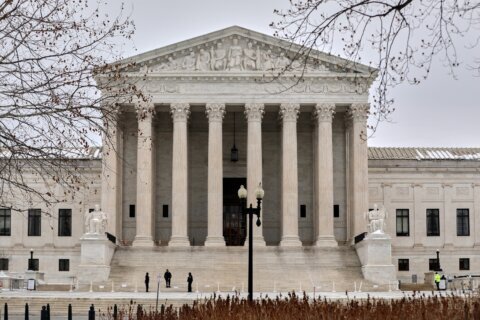All employees in the U.S. would have access to two weeks of paid time off in the event of a health emergency if a plan endorsed by Virginia Sen. Tim Kaine is passed on Capitol Hill.
“The reason for this is pretty obvious,” Kaine told WTOP. “You do not want sick employees coming to work and spreading coronavirus or anything that further hurts other workers or the workplace itself.”
The bill, introduced by Sen. Patty Murray, D-Wash., and Rep. Rosa DeLauro, D-Conn., would allow all employees to accrue seven days of paid sick leave and provide an additional 14 days.
If passed, the bill would go into effect immediately in the event of any public health emergency, including the current coronavirus crisis.
- Sign up for news alerts from WTOP
- DC-area schools tweak schedules in response to coronavirus
- Coronavirus tips: Use common sense, don’t panic over DC-area cases
- Coronavirus test results in DC, Maryland and Virginia
- Coronavirus FAQ: What you need to know
- Closings and delays
- What federal agencies are planning
In addition, the bill would also ensure paid sick leave when an employee’s child’s school is closed, or if any family member is quarantined or isolated due to a public health emergency.
“We’re seeing in this time of pandemic that we need to provide assurances to workers,” Kaine said.
The legislation is rolled into a package of coronavirus-related bills that the House plans to consider Thursday, including free coronavirus testing, emergency food aid and enhanced unemployment benefits.
In the U.S., about 27% of private sector workers don’t have access to paid sick leave, according to the Bureau of Labor Statistics.
“What America wants right now is the sense that we have a comprehensive strategy for dealing with this issue,” Kaine said.
There is currently no federal sick leave policy in the U.S., but 12 of the 50 states and D.C. require employers to offer paid sick leave.
The bill is also endorsed by the National Partnership for Women and Families, National Employment Law Project, the Center for Law and Social Policy, and the Center for American Progress.
The Associated Press contributed to this story.








